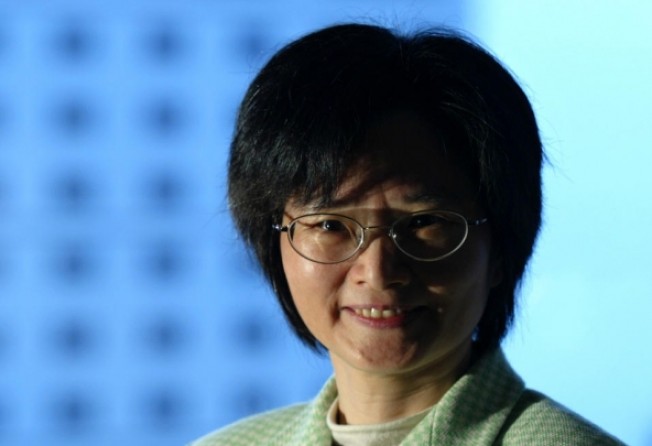
Legal row won't halt Sinosoft IPO
The technology firm that has been mired in a dispute with South China is pushing on with its HK offering, and Alibaba's stake will help

Alibaba-backed Sinosoft Technology is pressing ahead with plans to raise up to US$58 million from an initial public offering in Hong Kong despite a legal dispute with a Hong Kong-listed firm.
The Nanjing-based technology service provider is locked in a nine-year legal dispute with diversified group South China, which recently sued Sinosoft in Nanjing for up to 210 million yuan (HK$264.2 million) for a breach of a joint-venture agreement.

South China has filed a lawsuit against Sinosoft almost every year since 2004 on the mainland.
The legal battle would put pressure on Sinosoft when wooing investors, said Christfund Securities research director Simon Lam Ka-hang. "People will be concerned about the firm's operations. But at the same time I think it depends more on the pricing." He said the company should offer shares close to the low end of the price range, which is HK$1.22.
Sinosoft plans to issue 300 million shares with a price range of between HK$1.22 and HK$1.50, according to a term sheet. Pricing is scheduled for June 26. Trading is due to start on July 5.
Alibaba Group, the mainland's largest e-commerce services provider that operates platforms including Taobao Marketplace and Tmall.com acquired a 25 per cent stake in Sinosoft with 170 million yuan in 2011 through its investment subsidiary.
After the listing Alibaba's stake will be diluted to 13.75 per cent.
"Alibaba's ownership is an attraction," Lam said. "The fact that a giant company like Alibaba invested in Sinosoft strategically pumps confidence into people about its future."
About two-thirds of its customers are either government units or agents of government projects. If any of the existing government customers cease to use its software and solutions, the company said in a filing to the Hong Kong stock exchange, then "our business, financial condition and results of operations may be materially and adversely affected".
The company's trade receivables reached 194.6 million yuan at the end of last year, and the wait for receivables was as long as 253 days. Sinosoft said that was due to "the expansion of business" and the delay in payment of "certain direct government customers".
Lam said there were some risks but was not too concerned. Government customers might be slow in making payments but, eventually, they would usually pay, he said.
Sinosoft, founded in 1999, mainly focuses on export tax rebate-related software, e-government solutions, information integration software and system integration solutions. The company was listed on the AIM, the London Stock Exchange's international market for smaller companies, in March 2006, making it the first Chinese software company to list in London.
Hong Kong was not chosen when the executives of Sinosoft were looking for an IPO market at that time because they thought big mainland companies grabbed too much investor attention.
London's AIM was chosen for its relatively light regulations and its reputation as a place to list small and fast-growing companies. "Sinosoft also wants to be listed in Hong Kong because here it is more convenient to raise funds from selling new shares," said Lam.
The Hang Seng Index has lost 10 per cent this year amid worries that the mainland economy is slowing and the recovery in the US and European Union remains unclear.
"But even so, whenever a listed company wants to issue new shares, it's always easier in Hong Kong than in London," said Lam. He said Sinosoft could list first and sell more shares when market sentiment improved.